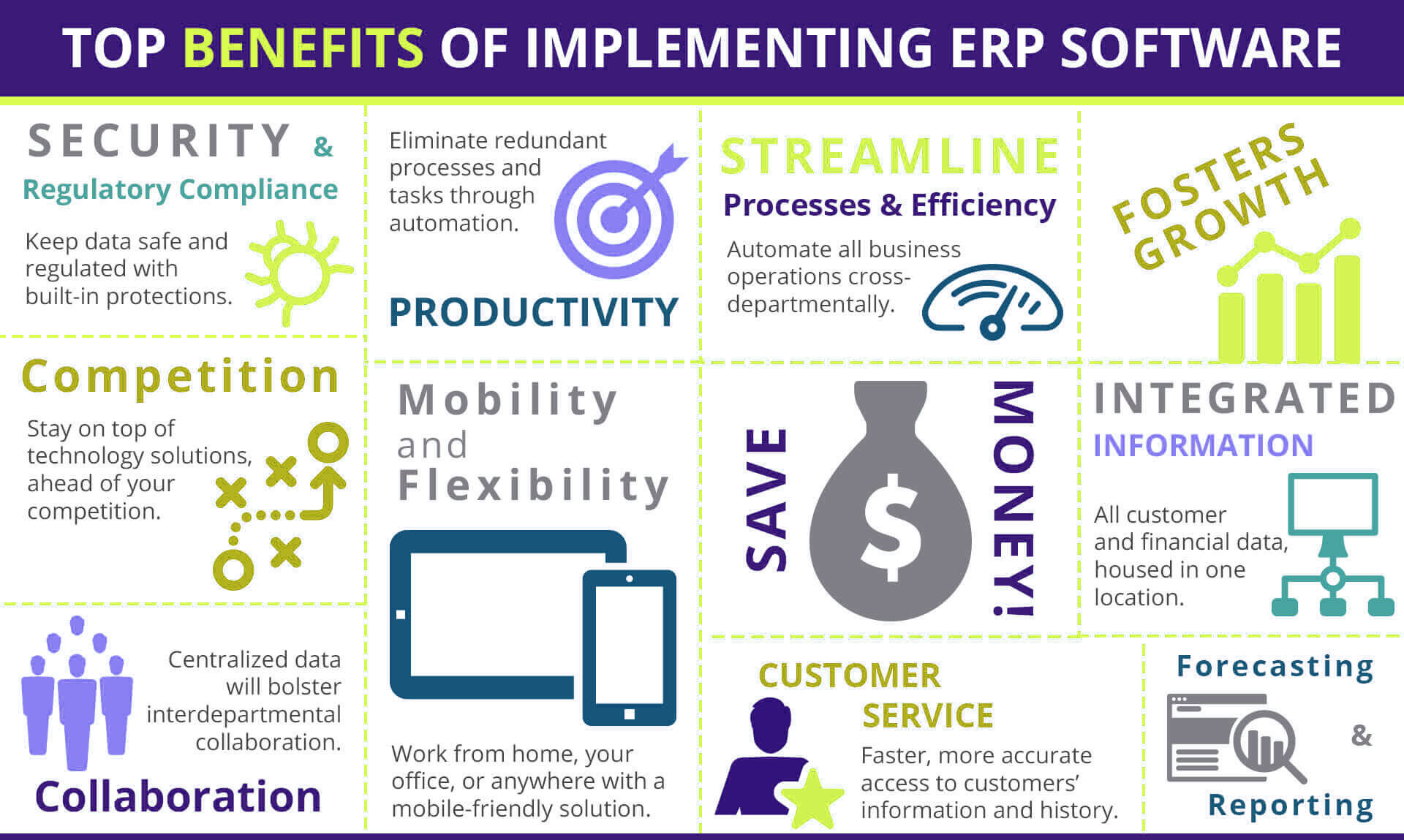ECOMMERCE AND ERP
Ecommerce is high-speed, high-stress and never-ending. That is, until you find the right team and workflows to help you out.
Whether used to boost productivity or eliminate costly errors, automation is key to your success as an online seller. The problem is, tons of software now claim to do the same thing.
Enterprise resource planning (ERP) systems are among them. While an invaluable tool for large businesses, ERPs aren’t an apples-to-apples replacement for software that’s specifically made for ecommerce.

ERP Benefits and Features
Running a business requires juggling everything from finance to operations, sales to marketing. ERP systems aim to consolidate these back-office processes into one system. They help you track, store and share information across various departments, ensuring that all of your employees rely on the same data.
Popular ERPs like Oracle, NetSuite, SAP, and Microsoft Dynamics are traditionally considered business management systems with accounting at their core. But to keep up with the changing tide of retail, many now have integrations for ecommerce solutions like:
Order management systems (OMS)
Warehouse management systems (WMS)
Inventory management systems (IMS)
Supply chain management (SCM)
Product lifecycle management (PLM)
Product information management (PIM)
Customer relationship management (CRM)
Business intelligence (BI)
Human resources management (HRM)
Customer experience management (CX)
Shopping carts like Shopify
The Challenges of ERPs in Ecommerce
Because ERP monoliths aren’t tailored to a specific industry or line of business, the quality of their ecommerce integrations often falls short of expectations. They’re built on older technology that just can’t keep up with ever-changing marketplace requirements or the level of innovation that ecommerce software routinely delivers.
Most ERPs are also built for back-office purposes. They’re not designed for customer-facing sites like your webstore, which need additional data transformation and real-time analysis. When you hinge your whole multichannel business to an inflexible system like this, you risk listing errors, noncompliance and other mistakes that can cost you your right-to-sell on marketplaces like Amazon.
To address another concern: ERPs require major financial and time investments. Aside from annual subscription fees, you face up-front and support costs that can each run into the hundreds of thousands of dollars. (Not to mention, you’ll likely have to involve multiple teams and hire an outside consultant.
This, coupled with the fact that it can take years to fully implement an ERP system can lead to disruptive changes to your business. Put plainly, things can get really messy really fast.